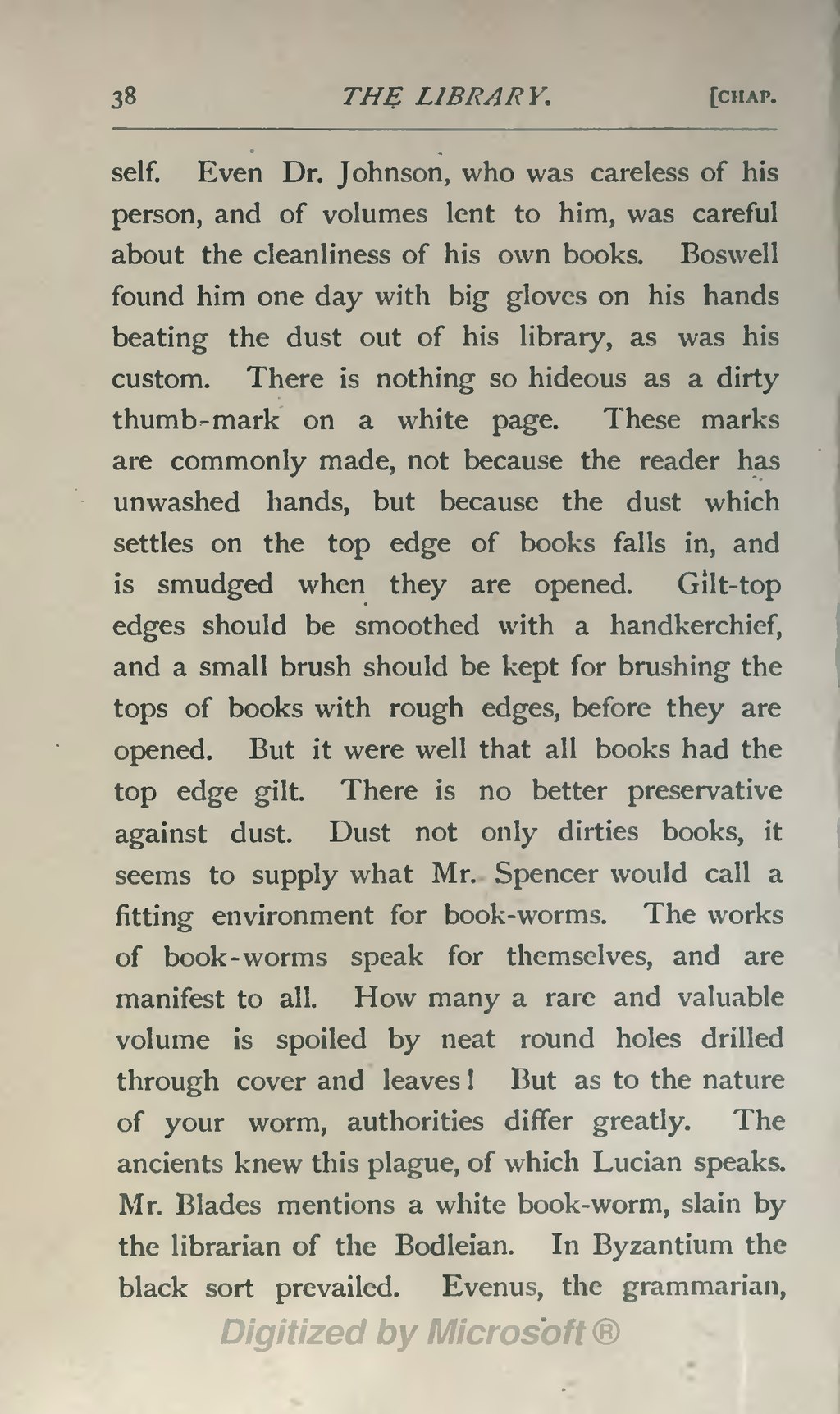self. Even Dr. Johnson, who was careless of his person, and of volumes lent to him, was careful about the cleanliness of his own books. Boswell found him one day with big gloves on his hands beating the dust out of his library, as was his custom. There is nothing so hideous as a dirty thumb-mark on a white page. These marks are commonly made, not because the reader has unwashed hands, but because the dust which settles on the top edge of books falls in, and is smudged when they are opened. Gilt-top edges should be smoothed with a handkerchief, and a small brush should be kept for brushing the tops of books with rough edges, before they are opened. But it were well that all books had the top edge gilt. There is no better preservative against dust. Dust not only dirties books, it seems to supply what Mr. Spencer would call a fitting environment for book-worms. The works of book-worms speak for themselves, and are manifest to all. How many a rare and valuable volume is spoiled by neat round holes drilled through cover and leaves! But as to the nature of your worm, authorities differ greatly. The ancients knew this plague, of which Lucian speaks. Mr. Blades mentions a white book-worm, slain by the librarian of the Bodleian. In Byzantium the black sort prevailed. Evenus, the grammarian,
